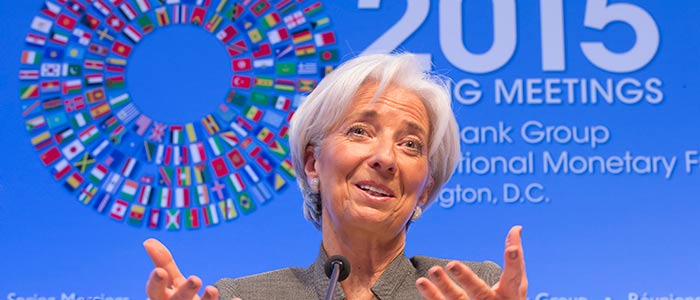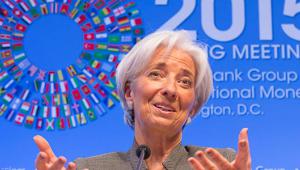WEb_IMF_ChristineLagarde_17169021875_5ac675797e_o.jpg

Christine Lagarde. Credit: IMF Staff Photo/Stephen Jaffe
Speaking at a law conference in Washington DC yesterday, Lagarde warned that globalisation was a “double-edged sword”, that has created winners and losers. The resulting backlash from the latter saw a loss of faith in institutions, partly fuelled by perceived and actual corruption.
She pointed to rising inequality within nations, the 2008 financial crisis, the recent scandals that consumed FIFA in 2015, and the libor rigging case. She also pointed to the situation in Brazil, where revelations around corruption at state oil firm Petrobas have nearly brought down the entire political system.
“Both the actual behaviour and the perception that there is corruption is highly corrosive to society. This has contributed to the growing support for populist policies,” she said.
Corruption in the public sector is of particular concern for the IMF, she continued, because it weakens fiscal capacity, discourages investment, perpetuates inefficiency and entrenches poverty and inequality.
She called for measures that strengthen the rule of law and increase fiscal transparency in order to prevent actual and perceived corruption.
“[Anti-money laundering] standards have taken on added significance given recent incidents such as the Panama Papers,” she added. “These leaks gave us a window into the scale of global financial secrecy and the opportunities for illicit behaviour.”
She singled out Belize, Cyprus and the US as requiring greater transparency around the true owners of secretive accounts held offshore.
Moving on to the private sector, Lagarde highlighted the global financial crisis of 2007-08 as demonstrating the “devastating” impact it can have.
“It’s not just a matter of fraud,” she added. “As was emphasised by the Archbishop of Canterbury during a recent panel hosted by the IMF on the subject, because of the impact the financial services industry can have on the economy, excessive risk taking is unethical even if it does not involve fraudulent behaviour.”
As well as calling for strengthened rule of law, as in the public sector, through increased regulation and supervision, she said that because of this the private sphere also needs to promote individual integrity through good education.
She said business schools should adopt a shift in paradigm around the meaning of individual success, placing more emphasis on professionalism and value to society, rather than high bonuses.
Companies will also need to undergo a shift in culture, she continued, to remove the “troubling” perception that flexibility on ethical standards is needed to succeed.
A key way to do this is through strong leadership, which she said is needed in both the public and private spheres.
“All good principles and intentions on ethics and integrity will only be taken seriously if the top leaders act as role models and send a clear message of zero tolerance,” Lagarde stated.
“The task before us is clear. Enhancing integrity in public and private sector governance is critical in mending the trust divide we see in societies today. Only then can we have enough confidence in the very institutions that are essential for sustained and inclusive growth.”













